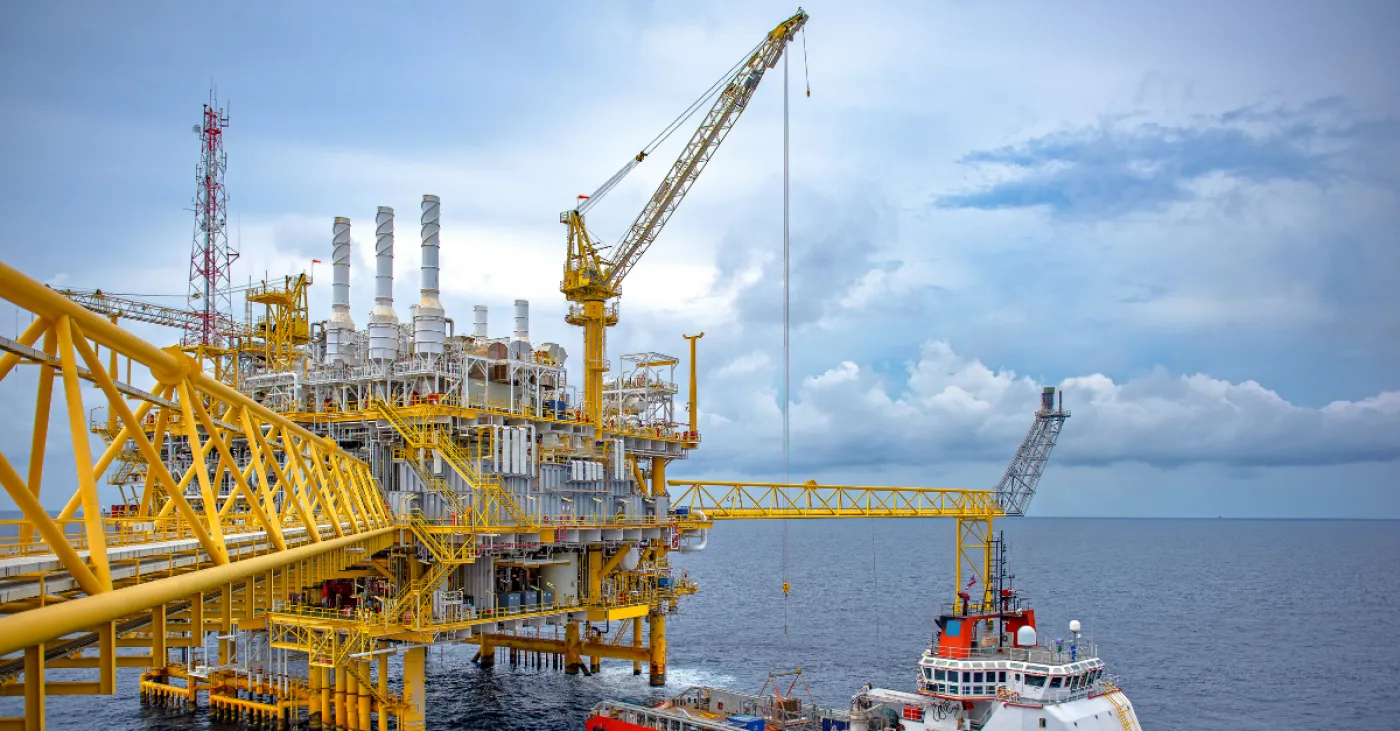Traditional leak testing of flanges, whether at onshore oil and gas plants or at offshore petrochemical facilities is a time-consuming process. This is because of the many steps involved in the process including the need to test large portions of the piping system using substantial volumes of pressurized media.
Traditional Leak Testing Methods
Traditional leak testing of newly erected or modified pipelines is typically carried out by filling the pipeline with pressurised water or gas. This method is used to monitor any changes in pressure in order to identify a defective joint. For large pipe systems, testing could be carried out in sections by blanking off an area of a system using shut-off valves or blinds. Depending on the valve location, it may be a large section of pipeline to be pressurised to test just one single flange connection, and in some situations, it may not even be practicable to leak test all joints.
Challenges of Traditional Methods
This laborious, traditional leak testing process translates into long production downtimes, high media costs and consequently induces an economic loss in the long term. Furthermore, there are safety risks associated with this method when nitrogen is used to flood the pipeline.
In comparison to the above method, reverse integrity flange testing allows leak testing to be completed on individual connections prior to the introduction of pressure testing media.
How can this be achieved? KLINGER Sentry Reverse Integrity Gaskets is the product solution behind this method, providing a viable and more cost-effective method to flange or pipeline joint testing.
Advantages of KLINGER Sentry Gaskets
These innovatively designed gaskets provide validation of individual joint integrity at the time they are each installed, and leak testing is completed for both the primary and secondary sides of the seal.
The ability to perform the leak test and make any adjustments at the time of installation diminishes the need to re-visit the joint and re-test once all joints have been installed on a pipeline. Along with using the product for entire piping systems, the Sentry product also provides quicker and easier leak integrity testing for targeted joints that may need to be remade.
For example, let’s look at the scenario of a tested system where a passing valve requires replacement. Rather than having to test or re-test the entire system or test pack, you could simply install a Sentry gasket on the two valve flanges and complete a reverse integrity test to provide assurance of joint integrity.
This represents massive benefits and costs savings, due to the product’s advantage of avoiding the need to pressurise and test the rest of the system.
Monitoring and Long-Term Benefits
Additionally, the Sentry gasket provides the ability to leak test golden joints or witness joints that may have otherwise gone untested, thus allowing all joints to be leak tested no matter their location within the facility. Furthermore, these gaskets allow for monitoring of the individual joint throughout its lifespan. So if leakage does occur at a later stage after installation, joints can be tested and adjusted in one single visit to the individual flange.
Cost Savings and Operational Efficiency
What these benefits ultimately stack up to is big cost savings for facilities, due to reduced volumes of testing media required, quicker overall leak testing times, and the ability to test and rectify leaking joints that may have otherwise gone untested.
This can equate to operational savings between $30,000 to $1 million+. Product characteristics that make KLINGER Sentry gaskets function as a more effective and quicker leak detection system include pressurised recesses in the annular space of the gasket to monitor pressure, a fluid delivery port to allow fluid communication and pressurisation of the cavities and a high pressure quick release test plug connector for quick attachment.
KLINGER Sentry gaskets are suitable for pipeline joints including ring joint flanges, raised face flanges, and hub connections. The range includes 4 different types of gaskets to suit various applications including bolted connections, clamped connections, and offshore petrochemical applications.
